German Shepherd Dog Breed
andreas strauss
June 15, 2022
German Shepherds are among the most loyal and devoted dogs in the world. They’re eager to please their owners from day one and are known to be fantastic watchdogs, guide dogs or work dogs in general! In this blog, we’re going to break down some German Shepherd facts and help you decide if this is the breed for you.
Quick Links:
- German Shepherd Characteristics
- German Shepherd Origin
- German Shepherd Personality
- German Shepherd Appearance
- Adopting a German Shepherd
- How much does a German Shepherd Cost?
- German Shepherd FAQs
- Additional Resources on German Shepherds
If you’re more of a visual learner and are interested in knowing more about the German Shepherd’s history, living needs and trainability, we’ve linked a short but informative video down below:
GERMAN SHEPHERD CHARACTERISTICS
| Life Span: 10-13 Years | Grooming: Extensive | Child Friendly: Yes | Tendency to Bark: High |
| Health Issues: Moderate | Shedding Level: High | Apartment Friendly: No | Playfulness: High |
| Energy Level: Medium | Adaptability: High | Pet Friendly: Low | Intelligence: High |
| Exercise Needs: High – Minimum of 2 hours per day | Social Needs: Moderate | Affection Level: High | Trainability: High |
GERMAN SHEPHERD ORIGIN
The German Shepherd’s history, as the name suggests, began in Germany around the late 1800s. They were originally bred in the hopes of achieving the ‘perfect herding dog’ – to herd and protect flocks of sheep in the German countryside.
Here are some fast facts about the German Shepherd’s history:
- German Shepherds were considered to be strictly working dogs back in the breed’s early days. They weren’t seen as household pets, although their owners would provide them with food and shelter.
- German Shepherds became popular family dogs after WWI, as they were admired for their values and commitment to their owners.
- It’s estimated that German Shepherds began their police service in Europe around 1910. After WWI, they became a popular choice for hard-working service dogs.
- During both WWI and WWII, the breed name ‘German Shepherd’ was replaced with ‘Alsatian’, although both are used to this day.
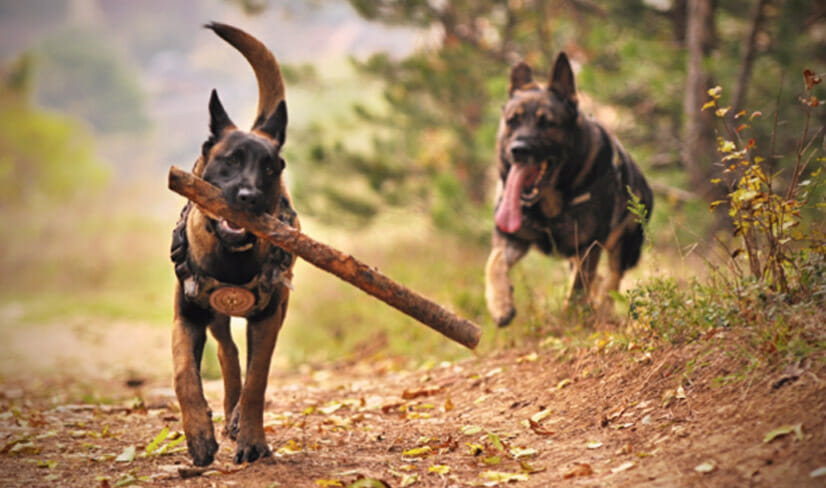
GERMAN SHEPHERD PERSONALITY
German Shepherds, as a breed, are fiercely loyal and devoted to their families. They’re playful dogs at any age, and they enjoy spending time outdoors. They’re smart and easy to train but can be stubborn in their ways if they aren’t trained properly. As with all dogs, this breed comes with its own distinct and unique temperamental attributes that should be considered before adoption.
Here are some of the key personality traits of German Shepherds:
- Protectiveness – some German Shepherds may display behaviour relating to over-protectiveness over their owners and their territory. Training from an early age can help curb this habit.
- High levels of intelligence – German Shepherds are known to be easy to train. If sourced from a responsible breeder, these dogs are confident and take to any training regime without much trouble.
- They’re one of the most playful breeds. German Shepherds are excitable and eager. They play well with the other pets that they’re raised alongside, although they can be a little bit rough during playtime without meaning to be.
- They’re exercise-oriented dogs. This could be attributed to the breed’s original purpose, as German Shepherds adore running around and physically engaging themselves outdoors.
- They’re family-centred pets. If raised as social dogs from an early stage, German Shepherds get along wonderfully with children. However, due to their guarding instinct, these canines tend to be distrustful of strangers.
GERMAN SHEPHERD APPEARANCE
German Shepherds have been described as ‘wolf-ish’ looking dogs. Their naturally upright ears, bushy tails and sable coats are trademark features of this breed. Males and females are similar in both height and weight, although males are known to be the larger of the two. Based on the variant and breeder that a German Shepherd has been sourced from, their physical appearances may differ.
Here’s a quick run-through of the German Shepherd’s most defining features:
- Pointy ears – Most German Shepherds are born with soft, floppy ears. After around 5 months, their ears begin to naturally perk up – becoming pointy and upright, a key trademark characteristic of this breed.
- Straight muzzle – German Shepherds have long and straight muzzles. Their noses are typically black and square-shaped, becoming more defined as they age.
- Almond-shaped eyes – German Shepherds are also particularly loved for their dark and expressive almond-shaped eyes.
- Bushy, sabre-shaped tails – German Shepherds are born with long, bushy tails that are slightly hooked at their end, reminiscent of the shape of a sabre.
- Coat variety – Some German Shepherds may appear with different coat lengths and textures. These may range from short and coarse, to long and fluffy.
German Shepherd coat colours are known to come in:
- Sable
- Black and Tan
- Black and Cream
- Black and Red
- Black and Silver
- Black and Bi-colour
- White
- Black
Interestingly, white German Shepherds are the least desirable variant within the breed. Whereas Black German Shepherds are considered to be the rarest and most sought after.
You can read more about the German Shepherd’s coat colours here.
ADOPTING A GERMAN SHEPHERD
When it comes to looking at German Shepherds for sale, it’s important to keep a few key factors in mind. When looking for German Shepherd Breeders in Australia, make sure to keep an eye out for:
- Breeders with trusted reviews and a long history.
- Breeders who don’t undercut the price of their puppies. Breeders who charge a higher fee, rather than a ‘bargain price’ are often more reputable than those who do not.
- Breeders who are well-versed in the breed you’re looking for. When we say ‘well-versed’, they should be able to answer any questions that you ask.
- Breeders who encourage you to meet the parent dogs of your soon-to-be German Shepherd puppy.
- Breeders who take health testing seriously. Trustworthy German Shepherd breeders monitor the health of all of their dogs very closely. This helps ensure that the chances of dogs being born with physical and mental health problems are minimised.
Use this guide as a ‘checklist’ while looking for a trustworthy breeder.
Sometimes, you may choose to go to a shelter when looking to adopt a German Shepherd. Although shelters are usually made up of older dogs, and purebreds tend to be few and far between, there are always exceptions. You should consider adopting through a shelter or rescue when:
- Looking for an older dog. Adult German Shepherds or even older dogs have already grown into their temperaments and have been trained, so they can adapt to their new homes much more easily than a puppy would.
- Looking to give a dog a second chance. There are plenty of sweet, loving dogs waiting for a new home all over the country. If you’re not completely set on a specific type of German Shepherd, then we would strongly recommend this option.
You can have a look at a well-known German Shepherd shelter here, and other dog rescue programs here.
HOW MUCH DOES A GERMAN SHEPHERD COST?
The average cost of a German Shepherd puppy is approximately $750-$1200, depending on the variant as well as the breeder that they’re sourced from.
GERMAN SHEPHERD FAQS
Are German Shepherds aggressive?
Due to their association as guard dogs or security dogs, German Shepherds are often stereotyped as being unfriendly or aggressive. While they are distrustful of strangers, if a German Shepherd was bred by a responsible breeder and trained early on, they’re likely to have an even temperament and be well-behaved.
Is a German Shepherd a good family dog?
German Shepherds are a great addition to the family if they have been properly socialised and trained. The nature of this dog is to be incredibly loving and caring to its owners. You can read more about how they fair with kids below.
Do German Shepherds get along with kids?
Yes! German Shepherds are extremely child-friendly, so long as they are trained and socialised properly from a young age. Due to being bred for the purpose of guarding and herding, these dogs will most likely take care to watch over and protect the younger members of their family.
Do German Shepherds shed?
German Shepherds are known for shedding continuously and relentlessly! Dubbed as ‘German Shedders’, these dogs have plenty of hair, thanks to possessing a double coat. They lose one of these layers, their undercoats, twice a year (which means they shed even more) during the spring and fall months.
How long do German Shepherds live for?
Most sources state that the average life expectancy for a German Shepherd is around 10-13 years. Unfortunately, these dogs are also known for their genetic health conditions, which may shorten their lifespans. However, as long as they are purchased from reliable breeders and their health is monitored closely, German Shepherds can lead long and happy lives.
Which German Shepherd is best?
There’s no exact straight answer to this, each variant of German Shepherd has its own pros and cons. Only you, as the owner, could determine which type is best suited to you. You can read up more on the different types of German Shepherds here.
Why are German Shepherds the smartest dog?
Experts agree that German Shepherds rank amongst the most intelligent dog breeds. This is because of their comprehensive and retentive memory, which allows them to easily memorise commands and instructions picked up during training.
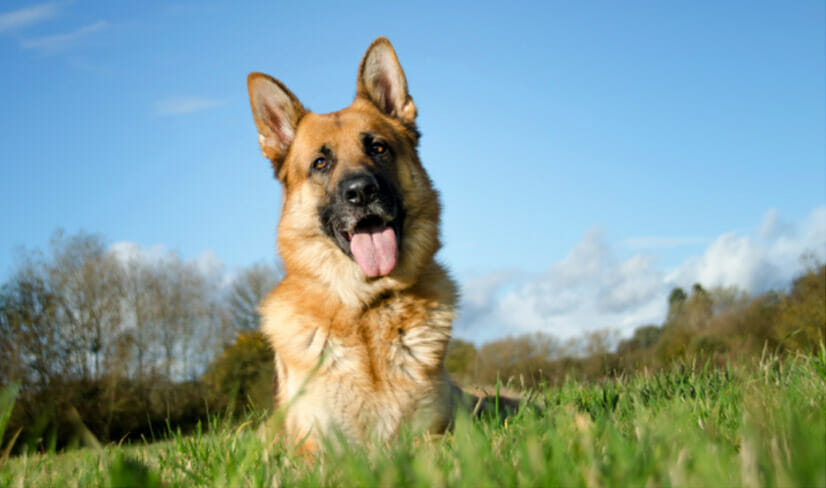
Additional Resources on German Shepherds
- Read about K9 dog breeds to learn more about the best police dogs.
- Learn more about German Shepherd puppies.
- Learn about adopting a GSD and the German Shepherd price.
- Discover new German Shepherd facts.
- You can read even more about the German Shepherd dog.
- Learn more about the rare Black German Shepherd.
- Discover popular German Shepherd names.
As should always be the case, it’s best to do extensive research before choosing to adopt a dog. Dogs are family members after all, and you should always be prepared! You can read a more complete guide on German Shepherds here if you’re interested in learning a little more about this breed.
In the event that you do adopt a German Shepherd, Pet Insurance Australia is the perfect place to get your dog insurance sorted! Contact us today for a quote, and we’ll look after your best friend, too.
Disclaimer
This blog does not replace a qualified veterinarian’s medical expertise or advice. Please consult a registered veterinarian for further information on the blog topic. The material and information on this blog are for information purposes only. Please note that any linked websites or mentioned products are not sponsored affiliate links or paid endorsements. Pet Insurance Australia does not accept liability for any damages arising from your interpretation of the information presented on this blog. This includes Pet Insurance Australia not being liable for: any false, inaccurate or incomplete information on the blog; any damages that arise from technical issues on the website and the blog being unavailable; any damages from clicking through a link in the blog to a different website.
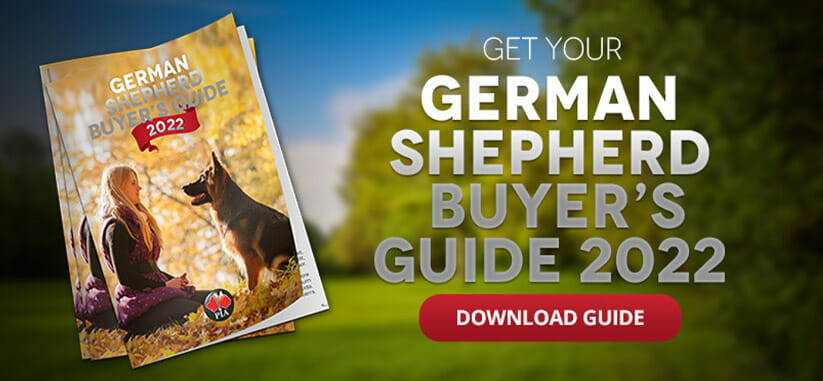
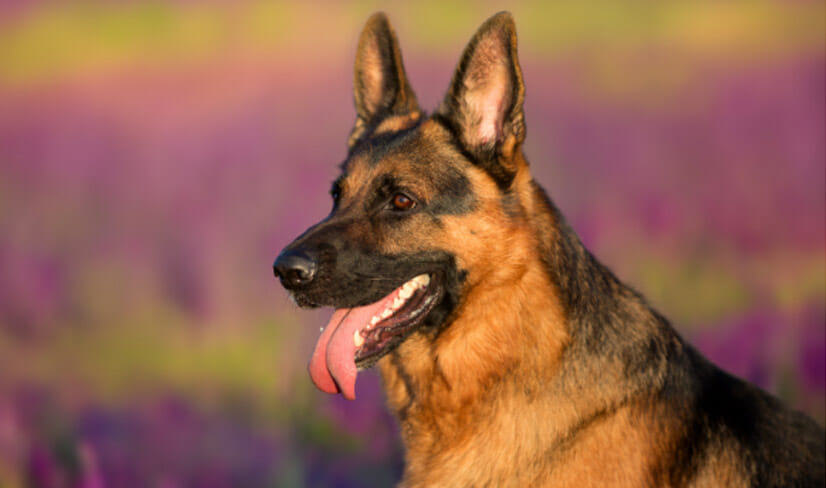
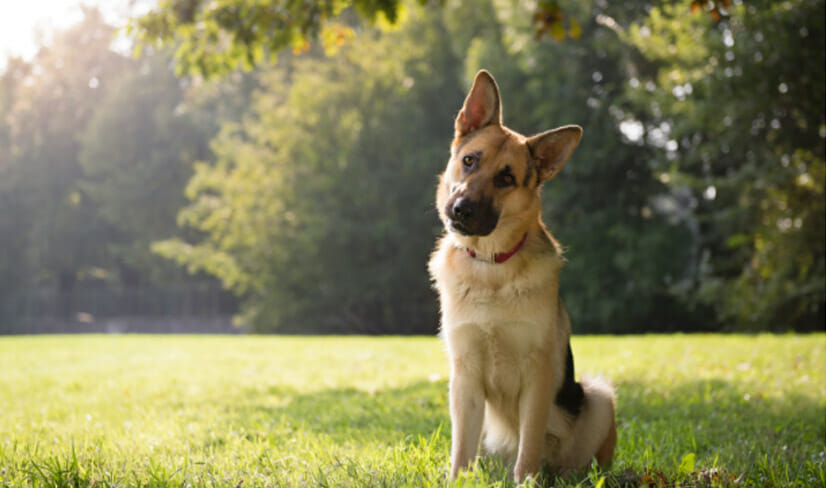

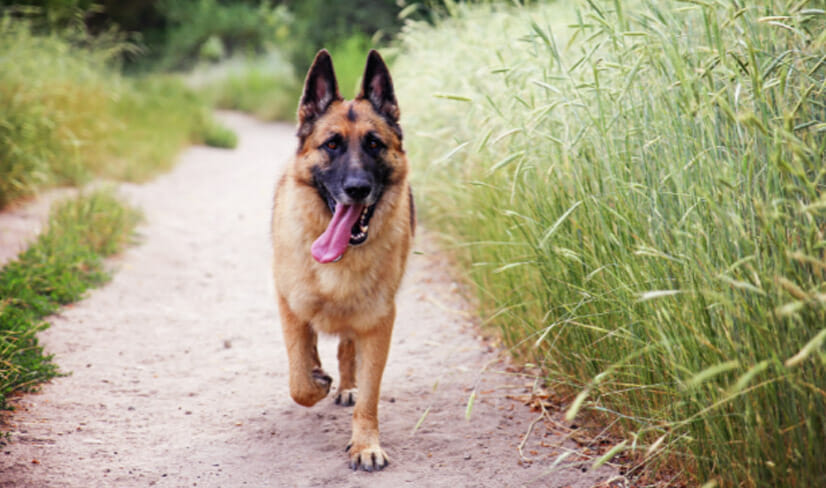
8 Comment